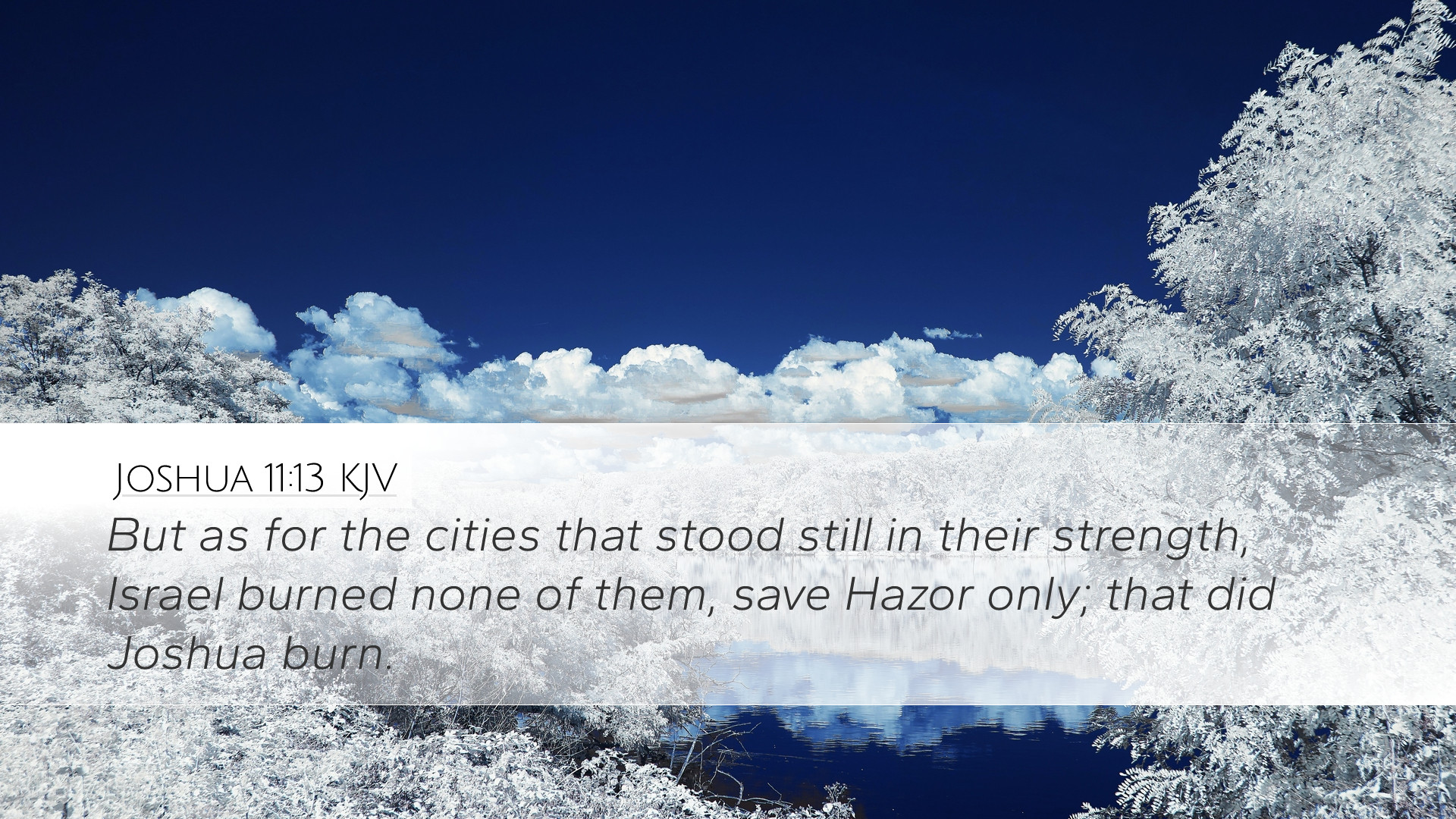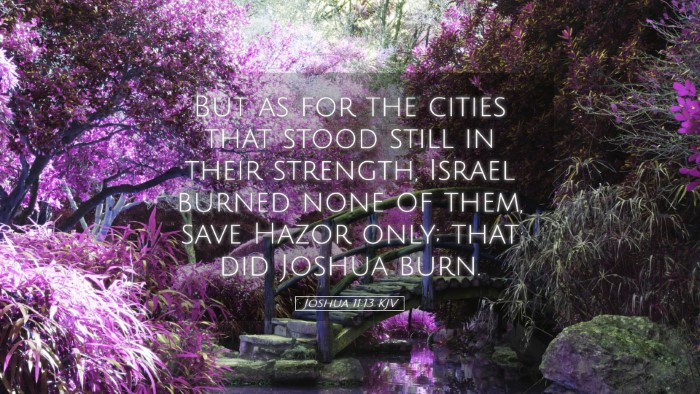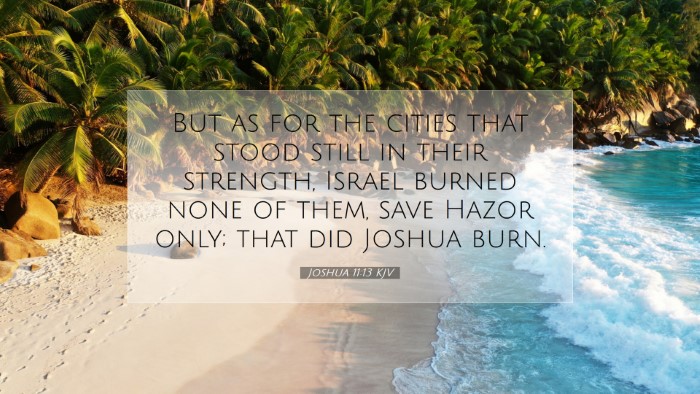Old Testament
Genesis Exodus Leviticus Numbers Deuteronomy Joshua Judges Ruth 1 Samuel 2 Samuel 1 Kings 2 Kings 1 Chronicles 2 Chronicles Ezra Nehemiah Esther Job Psalms Proverbs Ecclesiastes Song of Solomon Isaiah Jeremiah Lamentations Ezekiel Daniel Hosea Joel Amos Obadiah Jonah Micah Nahum Habakkuk Zephaniah Haggai Zechariah MalachiJoshua 11:13
Joshua 11:13 KJV
But as for the cities that stood still in their strength, Israel burned none of them, save Hazor only; that did Joshua burn.
Joshua 11:13 Bible Commentary
Commentary on Joshua 11:13
Joshua 11:13 states: "But as for the cities that stood still in their strength, Israel burned none of them, save Hazor only; that did Joshua burn." This verse serves as a pivotal moment within the narrative of the conquests led by Joshua as they pertain to the promised land. Below is a synthesized commentary based on the insights from various public domain scholars.
Historical Context
Matthew Henry notes that this section reflects the military campaigns of the Israelites as they sought to claim the land promised to them by God. The passage highlights the fate of cities that did not succumb to Israel's advance, showcasing a decisive moment in Israel’s military history and their adherence to divine command.
Meaning of "Cities that stood still in their strength"
Albert Barnes emphasizes the significance of the cities that remained fortified and unyielding to the siege of the Israelites. These cities represented not just physical strength but also spiritual fortitude—a resistance rooted in their idolatrous practices and rejection of Yahweh. The reference to these cities serves as a reminder of the broader spiritual conflict; they stood against God and His purposes.
The Exception of Hazor
Adam Clarke elaborates on the specific mention of Hazor, noting that it was a prominent city, both strategically and politically. It was the leading city of the northern Canaanites and posed a significant threat to Joshua’s campaign. By burning Hazor, Israel was not merely destroying a city; they were dismantling the locus of Canaanite power in that region, which proves the significance of obedience to God's command to purge the land of its sinful inhabitants.
Theological Implications
The act of sparing certain cities while destroying others can be seen as illustrating God's sovereignty in judgment. Matthew Henry points out that divine judgment is impartial and selective. The cities that stood in their strength illustrate human pride and reliance on their own defenses, which ultimately could not save them from God's judgment.
Lessons for Believers
- The Call to Trust: Just as the Israelites were called to trust in God’s plan, modern believers are reminded to depend on God’s strength rather than their own.
- God’s Sovereignty: The events in Joshua serve as a testament to God’s control over worldly powers. Despite seeming setbacks, God’s will prevails in human history.
- Spiritual Warfare: The struggle against the fortified cities reflects the believer’s ongoing battle against sin and the world. Just as the Israelites had to engage in physical conflict, believers today are engaged in spiritual battles.
Conclusion
Joshua 11:13 encapsulates a moment of decisive military and spiritual significance within the narrative of the conquest of Canaan. The sparing of certain cities indicates God's justice and the necessity of total reliance on divine strength. Both theologians and students of the Bible are invited to reflect on the depths of obedience, the nature of spiritual warfare, and the overarching themes of divine sovereignty throughout the biblical narrative.


